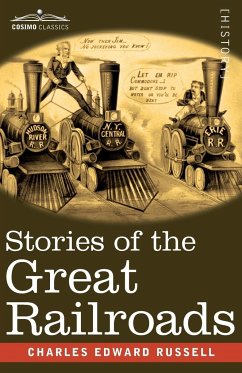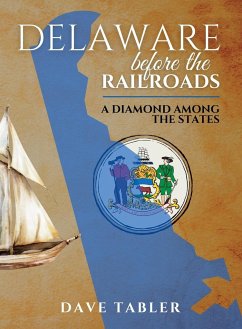
Stories of the Great Railroads

PAYBACK Punkte
13 °P sammeln!
"Meantime you and I, we pay the extortionate rates in everything we buy, and meantime these same extortionate rates pile up to make the fortunes that are produced from an investment of nothing." -Charles Edward Russell, Stories of the Great Railroads (1912) Stories of the Great Railroads (1912) by Charles Edward Russell is a collection of articles, most of which originally appeared in Hampton's Magazine prior to the book's publication. Russell documents the corruption in the railway industry from finances and mismanagement to monopolies and worker safety. Russell's journalistic revelation led ...
"Meantime you and I, we pay the extortionate rates in everything we buy, and meantime these same extortionate rates pile up to make the fortunes that are produced from an investment of nothing." -Charles Edward Russell, Stories of the Great Railroads (1912) Stories of the Great Railroads (1912) by Charles Edward Russell is a collection of articles, most of which originally appeared in Hampton's Magazine prior to the book's publication. Russell documents the corruption in the railway industry from finances and mismanagement to monopolies and worker safety. Russell's journalistic revelation led railroad executives to claim that Russell was publishing lies. They went on to use their power to lead Hampton's Magazine to ruin. A primary source that digs deep into history and duplicity, this book is for those interested in learning more about the muckraking era.














